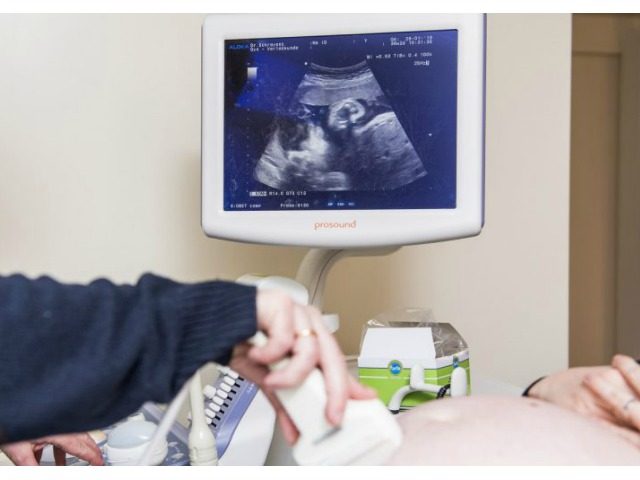A federal judge temporarily blocked Georgia’s abortion law that bans the procedure once a fetal heartbeat can be detected at about six or seven weeks of pregnancy.
Gov. Brian Kemp (R) signed the legislation, called the Living Infants Fairness and Equality (LIFE) Act (HB481), into law in May. It allows for exceptions in cases of rape, incest, or if the life of the mother is in danger.
Planned Parenthood, the ACLU, and the Center for Reproductive Rights filed a lawsuit in June, arguing the law is unconstitutional.
According to a report at ABC News, on Tuesday, U.S. District Judge Steve Jones, an Obama appointee, ordered the current abortion laws in the state to remain in effect temporarily. The law was scheduled to go into effect January 1, 2020.
“Based on current U.S. Supreme Court precedent, he wrote, the challenge to the new law is likely to succeed,” ABC News stated.
The Atlanta Journal-Constitution reported, “Jones said the U.S. Supreme Court has ‘repeatedly and unequivocally’ upheld Roe v. Wade, saying a state may not ban abortion before a fetus is viable — established in Roe as between 24 and 26 weeks of pregnancy.”
The report continued:
“What is clearly defined, however, is that under no circumstances whatsoever may a state prohibit or ban abortions at any point prior to viability, no matter what interests the state asserts to support it,” Jones wrote. “By banning abortions after a fetal heartbeat is detected, HB 481 prohibits women from making the ultimate decision to terminate her pregnancy at a point before viability.”
Candice Broce, a spokeswoman for Kemp, said the governor’s office is reviewing the decision.
“Despite today’s outcome, we remain confident in our position,” she said. “We will continue to fight for the unborn and work to ensure that all Georgians have the opportunity to live, grow, and prosper.”
ACLU of Georgia legal director Sean Young called the decision “a tremendous victory for the women of Georgia and for the Constitution.”
Planned Parenthood celebrated that five other abortion bans have also been blocked in the courts this year:
Father Frank Pavone, national director of Priests for Life, said in a statement sent to Breitbart News, “It’s no surprise that a federal judge, especially one appointed by pro-abortion former President Barack Obama, would temporarily block the Georgia law that would protect babies from abortion once a heartbeat can be detected.”
“It’s time for the Supreme Court to release lower courts from applying Roe vs. Wade, which is so outdated in its scientific agnosticism, and let the updated knowledge we have of the child in the womb start shaping our abortion policy,” Pavone added.
The Georgia law was the subject of much controversy as it worked its way through the state legislature.
In response to the Heartbeat measure, five female Democrats in the Georgia state House introduced a bill that would have required men middle-aged and older to report their ejaculations to a county sheriff.
Actress and political activist Alyssa Milano also called for Hollywood film companies to boycott the state once its Senate passed the measure. Georgia is a top filming location in the world because of its generous tax credits.
Milano then followed with a call for a sex strike – urging women to engage in abstinence from sex – to protest the end to “reproductive rights.”
She tweeted the news that the Georgia law has been temporarily blocked:
Disney and Netflix threatened to boycott the state, even though both film companies have continued and even stepped up filming in other countries in which abortion is illegal or highly restricted.
The Writers Guild of America threatened a boycott as well if the Heartbeat bill was signed into law.
Nevertheless, after all the threats to boycott by Hollywood elites and film companies, the effort appeared to backfire, with AMC Networks and WarnerMedia, The Walking Dead and Netflix’s Stranger Things, and other projects all remaining in Georgia.
State Rep. Ed Setzler, who sponsored the Georgia law, said it “seeks to recognize that the child in the womb that is living distinct from their mother has a right of life that is worthy of protection.”
Georgia Senate Science and Technology Chairwoman Renee Unterman, who sponsored the bill in that chamber, said, “We are not like New York or Virginia. We will not throw away children who aren’t perfect because all children are perfect in the eyes of God.”
When Kemp signed the legislation into law, he observed, “This is a powerful moment in Georgia.”
“It’s bigger than politics and partisanship,” he said. “Let’s champion life today and ensure that all Georgians – including the unborn – have the chance to live, grow, and prosper.”

COMMENTS
Please let us know if you're having issues with commenting.